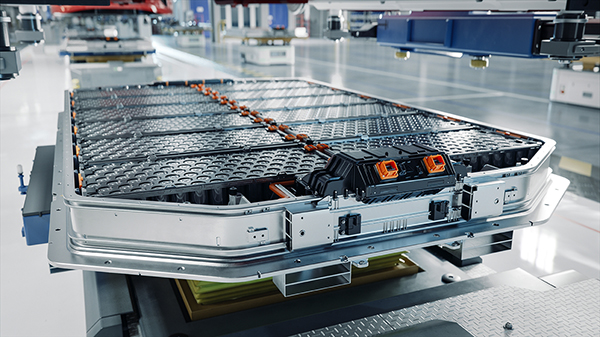At the forefront of nearshoring manufacturing conversations are EVs and EV battery manufacturing. There is a reason for this chatter.

By Eric Symon, head of sales, smart manufacturing at Panasonic Connect
There is a reason for this chatter. It was recently announced that over $3 billion would be invested to boost the domestic production of advanced battery and associated battery materials in the United States. Despite fluctuations, it is reported that EV sales grew by 11% year-over-year in the third quarter, reaching record highs for market share. And, globally, battery production has been ramping up, with 780 GWh of capacity added in 2023, more than 25 percent higher than in 2022.
The result of funding dollars and market demand represent a generational opportunity for the United States to produce EV batteries to meet future needs. An opportunity to build new factories and expand existing ones, and to create new manufacturing jobs and help the industry write its future.
It will take a commitment to funding, innovation, machinery, material, and talent to get to where we want to be by 2030. Here are a few keys to this equation.
Resiliency in manufacturing is nothing new. Supply chain fluctuations, material challenges, shifting demand, and changing government policies and regulations keep everyone on their toes. Factories need to produce on time, with high efficiency and quality, to enable scale and avoid lost business opportunities. This challenge in EV battery manufacturing is amplified. Getting battery chemistry and a complex manufacturing process right, along with leveraging limited domestic battery manufacturing expertise, represent difficult hurdles to overcome. According to McKinsey, it costs approximately $4 million for each day of lost product for a for a 50 GWh facility.
To remain resilient and nimble during this evolution, while also meeting growing demand, EV battery manufacturers must take a data-driven approach to operations and systems. This includes material movement, machine health and maintenance, process monitoring, quality management, and the ability to quickly reconfigure systems to support changes in the manufacturing process. A data-driven digital manufacturing platform with strong manufacturing execution system (MES) capabilities is a critical component to enabling this approach. It allows manufacturers to better track, trace, and control production, and provides the flexibility to easily adjust to changing requirements. These solutions give greater visibility into the entire manufacturing operation, connecting information and data from all steps within the manufacturing process. This offers the ability to take a holistic view of the factory and supply chain and make better-informed decisions, as opposed to disconnected decisions made in a silo.
Producing EV battery packs isn’t cheap — but the industry has come a long way in recent years. It’s estimated the cost to provide a lithium-ion battery pack declined by almost 90 percent between 2008 and 2022. Much of this reduction is attributed to improvements in battery technologies and an increase in manufacturing volume. In the same way vehicle demand will fluctuate, so will the costs associated with producing them. The result? A requirement to optimize production, material, and machinery on an ongoing basis.
Manufacturers will rely on digital manufacturing platforms to enable this optimization, with a predictive approach to manufacturing that leverages digital twins and automation technology increasing the veracity of decision making. As we embark on EV battery manufacturing, businesses that take a static approach to systems will leave opportunity on the table.
EV manufacturing is expected to bring jobs to the United States as part of its reshoring efforts. Just over a year ago, a $15 billion dollar package was announced to support the automotive industry’s transition to electric vehicles. This includes expanding automotive manufacturing facilities, recruiting and retaining talent for jobs, and strengthening supply chain resiliency.
EV battery manufacturing, which currently largely relies on talent from overseas, is creating demand for jobs domestically. Given the engineering and software complexity of electric vehicles, the new generation of workforce requires a different skill set. The industry’s success hinges on its ability to recruit, develop and retain top talent in a manufacturing sector — EV batteries — that is relatively new to the U.S. Manufacturers must also provide the tools and systems needed to perform their jobs at a high level.
For everyone to benefit from the EV transition in the United States, investments in talent, materials, technology and innovation must all come together to enable battery manufacturing to thrive. Manufacturers need the support of reliable partners with deep industry knowledge and advanced technological solutions to enable this journey.
Together, we can define this nation’s manufacturing future.

Eric Symon is head of sales, smart manufacturing at Panasonic Connect North America. Eric has held executive positions at market-leading software and professional services companies delivering value through digital transformation to customers in industries including manufacturing, aerospace and defense, and retail. Eric holds a B.S. from the Pennsylvania State University.
Scott Ellyson, CEO of East West Manufacturing, brings decades of global manufacturing and supply chain leadership to the conversation. In this episode, he shares practical insights on scaling operations, navigating complexity, and building resilient manufacturing networks in an increasingly connected world.